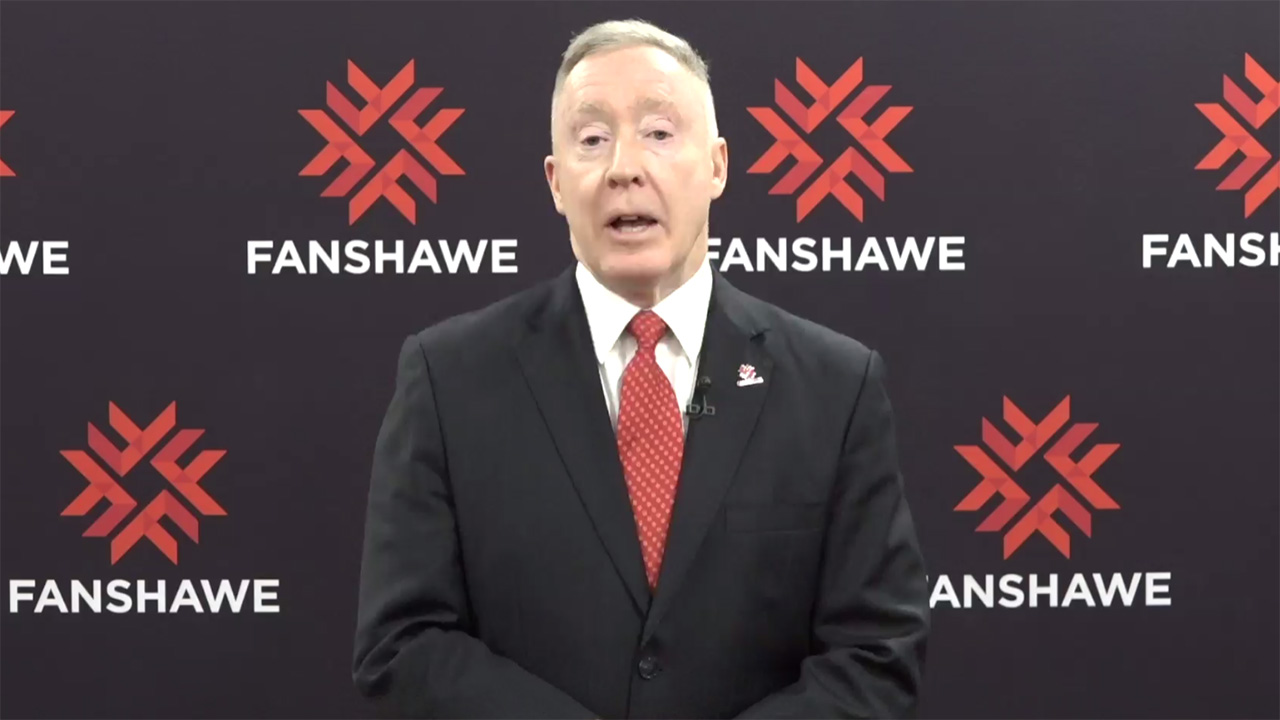Program discontinuations, job losses likely in wake of international cap, Devlin says
 CREDIT: GRACIA ESPINOSA
CREDIT: GRACIA ESPINOSAFanshawe president Peter Devlin said the college expects the reduction in international students will impact the college’s fiscal health.
At a virtual town hall for Fanshawe College staff, Fanshawe president Peter Devlin said he expects job losses and program discontinuation following the federal government’s announcement that it would be cutting international student enrollment by 35 per cent.
“I anticipate some programs and sections, we won’t offer because we don’t have student demand, and I certainly think there will be parttime faculty members who won’t have their contracts extended,” Devlin said to staff on Feb. 15.
Devlin also clarified the scope of the international student cap, emphasizing that the cap would exclusively affect international students starting their studies from the next academic year onwards. Current students would not be affected.
A significant aspect of the town hall pertained to programs collaborating with the International Language Academy of Canada (ILAC), particularly at the newly opened Toronto campus. Devlin said that future students in these programs would no longer be eligible to apply for the Postgraduate Work Permit (PGWP). This decision reflects a strategic shift in alignment with ILAC’s historical focus as a language school catering to a diverse cohort of students globally.
Expressing gratitude for the longstanding partnership with ILAC, Devlin acknowledged the necessity to recalibrate the relationship amidst evolving circumstances.
“While their real strength has been as a language school, they attract high school students and others worldwide. They have been a feeder of our college for more than a decade. We will continue to have a relationship with fewer international students, albeit in the short term,” Devlin said.
Although it is still unclear how Fanshawe will be impacted by the cap, Devlin said the college is expecting the reduction in international student enrollment will impact the college’s fiscal health. With international students accounting for 60 per cent of the college’s income, Devlin said it will be necessary to adopt a strategic approach focusing on financial management. He also outlined several strategic investments, including initiatives such as Enterprise Resource Planning (ERP) and central energy infrastructure enhancements to sustain the college’s growth trajectory and enhance operational efficiency.
Anticipating deficits in the coming fiscal years, Devlin stressed the importance of additional government funding to uphold academic quality, student support, and infrastructure modernization initiatives. Devlin unveiled new cost containment measures in response to budgetary pressures, including stringent controls on non-essential spending and hiring processes.
On Jan. 22, Immigration Minister Marc Miller announced that the federal government will introduce a temporary, two-year cap on new international student permits. A cap of 364,000 approved study permits will be introduced, representing a 35 per cent reduction from 2023. The cap will be allocated by province based on population, meaning some provinces may see more significant decreases than others. The provinces and territories will work together to determine how the cap is distributed among the designated learning institutions under their jurisdiction.















